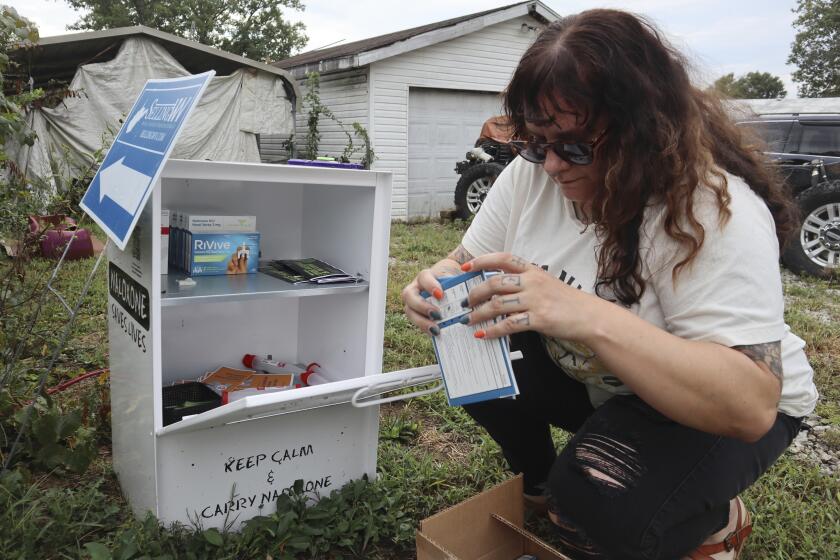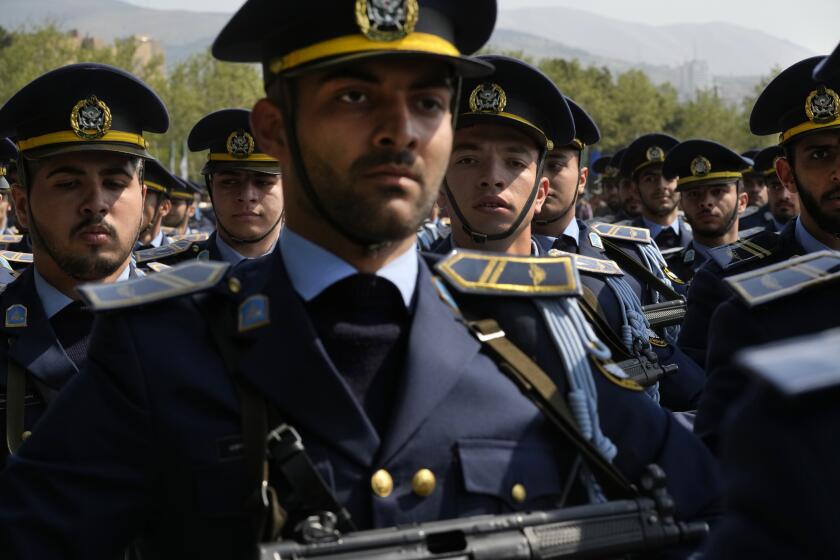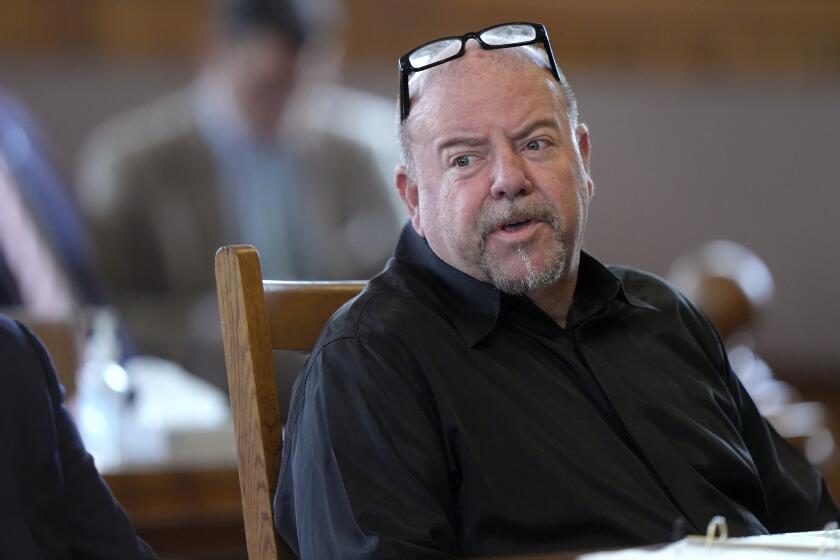Prague Talks May Indicate Imminent Change at Top
Amid reports of imminent changes in the party leadership, Czechoslovakia’s ruling Communist Party on Wednesday announced a Central Committee meeting has been moved up to Friday. The committee, initially scheduled to meet Dec. 14, has the power to replace party leader Milos Jakes.
Prague Radio also announced late Wednesday that the ruling Politburo had convened “to discuss the domestic situation.”
Party sources believe both meetings signal impending changes in the leadership, but it remains unclear whether they could mark the end for Jakes himself, one of Eastern Europe’s last remaining hard-line leaders.
The intense party activity came as the Prague government came under growing pressure from a budding political opposition. Once again, a crowd estimated at 150,000 to 200,000 jammed the capital’s main Wenceslas Square to demand the resignation of the party’s hierarchy and free elections.
And for the first time, the architect of the country’s 1968 “Prague Spring” liberalization, Alexander Dubcek, publicly declared his support for a main opposition demand. Although the former Communist leader did not personally appear at Wednesday’s rally, his statement supporting the demand for the resignation of Jakes and five other hard-liners was read to the cheering crowd.
Other reports said Dubcek might personally address a rally later this week.
The repression that occurred with the Soviet invasion and Dubcek’s ouster has left Dubcek virtually a non-person among young people. But for those who lived through the period of hope he brought to Prague in the spring of 1968, his support would carry a special significance.
Dubcek’s statement came as support grew both for the central opposition group, Civic Forum, and for the two-hour anti-government general strike planned for Monday.
For the first time, some factory workers said they plan to back the strike. At Civic Forum’s first news conference, it was reported that employees at the large CKD semiconductor factory in suburban Prague had voted by 1,407 to 3 in favor of joining the strike.
At Wednesday’s opposition rally, banners from several workers groups appeared, including one from the Prague municipal subway system. Some trucks in Prague also carried pro-strike banners taped to their doors.
But there was also evidence that many factories planned to reject the strike call.
Czechoslovakia’s opposition movement was for years limited to a handful of intellectuals, but in the course of the past week, it has spread through much of the country’s student population. If workers also support the stoppage in large numbers, it would be a further devastating blow to a Communist Party already in turmoil.
The strike has been called to press demands for immediate political change, including free elections and an end to one-party rule. Because of this, the regime Wednesday was actively pressuring workers to remain on the job.
Government militiamen reportedly ripped down pro-strike posters at the CKD factory, while plant security officers prevented student strike leaders from entering other installations. An appeal by the Prague Communist Party for other factories to ignore the strike was prominently printed in the main party newspaper, Rude Pravo.
A struggle also appeared to remain within the official Czechoslovak Television. Although it transmitted live coverage of the opposition rally for the first time Wednesday and reported opposition activity, its coverage was less extensive than it had been on Tuesday. No crowd estimate was given, for example.
Meanwhile, Civic Forum leader Vaclav Havel appealed for support from other East European groups pressing for reform, including East Germany’s New Forum. In addition, he said, letters were sent both to President Bush and Soviet President Mikhail S. Gorbachev asking for support.
Havel especially appealed to Gorbachev to reject the legitimacy of the 1968 Soviet invasion. Most of those in the current Czechoslovak party leadership are hard-liners installed by Moscow following that invasion.
Domestically, Civic Forum won important backing from a group of economic forecasters, who pledged their support in helping the opposition formulate an economic policy.
“We don’t want people to say Civic Forum is made up only of actors and others who don’t know how to run the country,” said Vaclav Claus, a respected economist. “Our forecasts are for the ‘day after’ (the end of Communist rule), to allow Czechoslovakia to face a transition period without chaos and inflation.”
As more support flowed to the political opposition, the party attempted to stem the visible erosion of its power with a series of dire warnings. A statement by Prague party leaders alluded to hysteria and warned of students and others “who were becoming a tool in the hands of those who want deception and destabilization and a return to the period before February, 1948.”
That date was the month Czechoslovakia became Communist.
FUTILITY FADE--With each success, East Bloc citizens get bolder. A12
More to Read
Sign up for Essential California
The most important California stories and recommendations in your inbox every morning.
You may occasionally receive promotional content from the Los Angeles Times.










